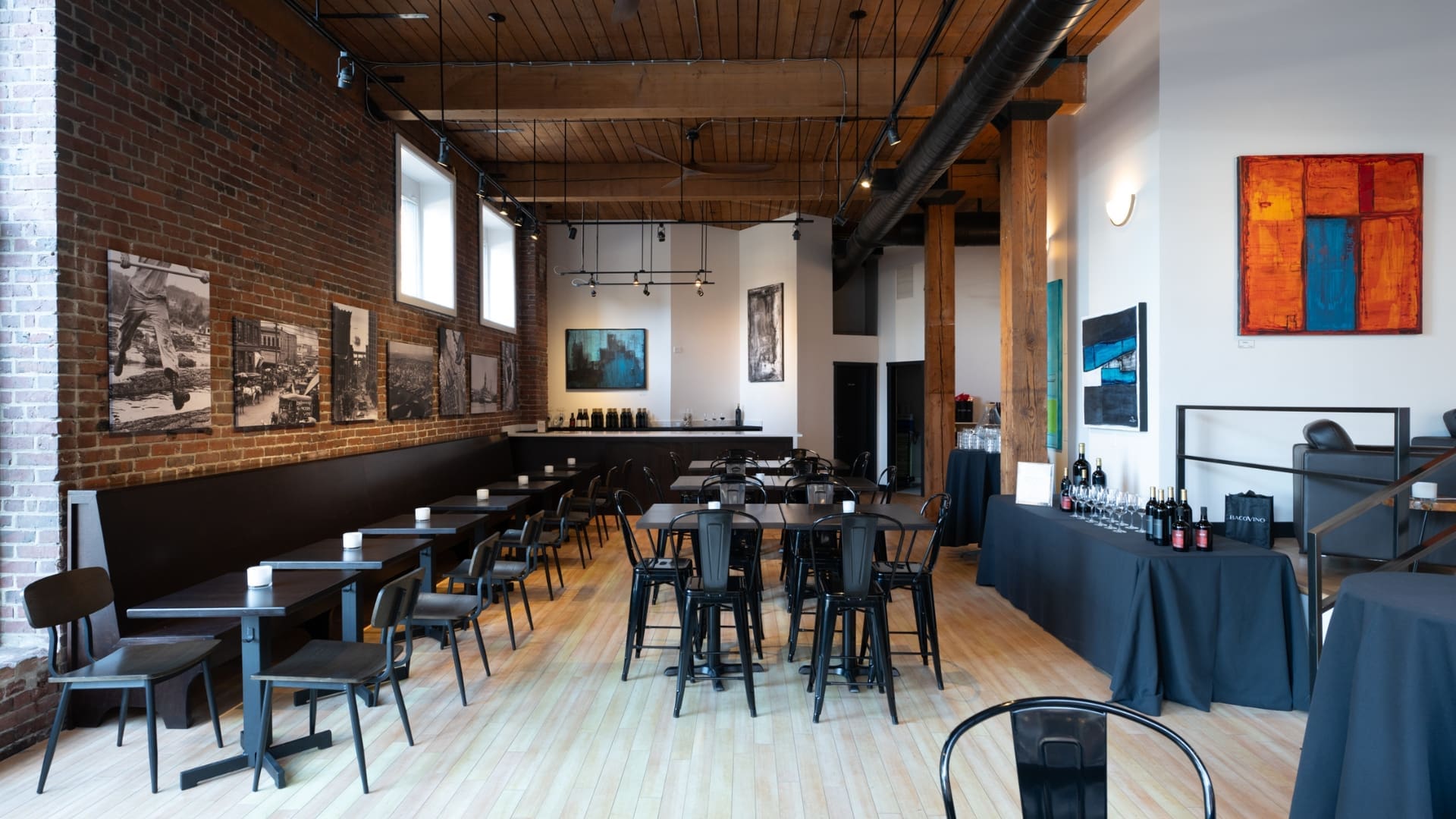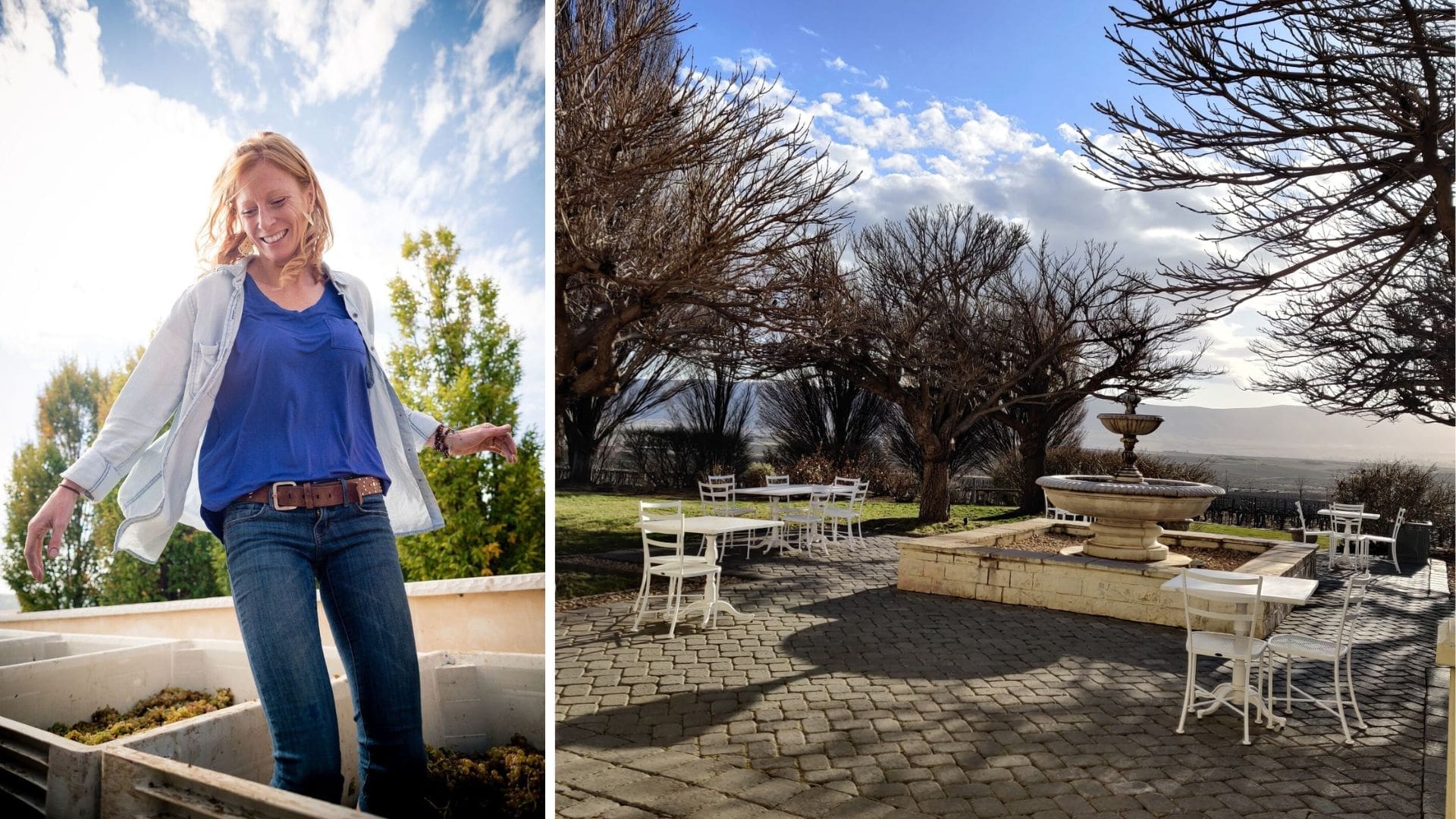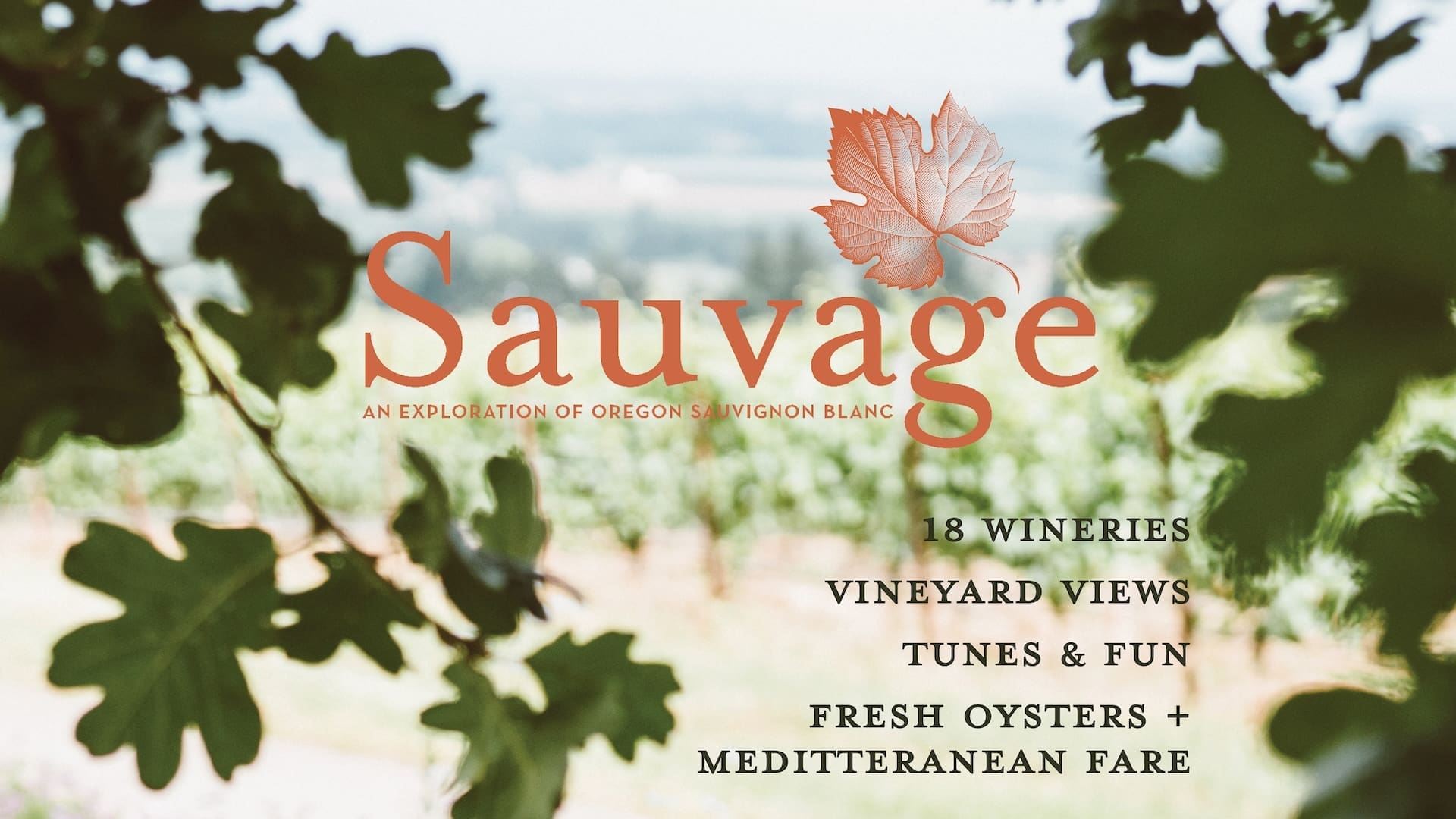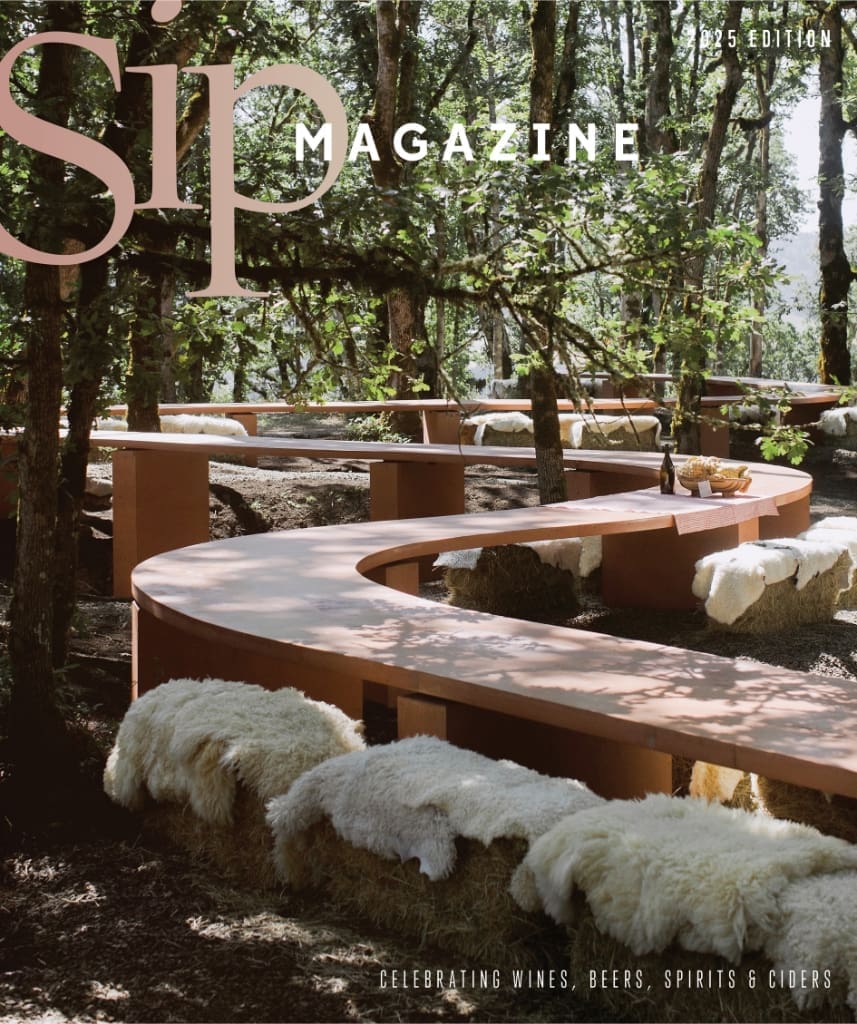Turning off the beaten path and navigating up the long, winding driveway, I found myself crossing over a small bridge overlooking a trickling stream. If I didn’t know any better, I would swear I was about to go on an adventure with four other wine-loving hobbits. This ideal setting has played the backdrop for countless picture-perfect weddings and ceremonies, but today Maysara Winery and Momtazi Vineyards is giving me the chance to enjoy the fruits of their labors.
I was welcomed by Hanna, one of the Momtazi sisters and head of events for the vineyard. Somehow she made the basic rote vineyard information weave seamlessly into our conversation. She was talking about her family and their passion, rather than simply a script she had memorized.
Founded in 1997, Moe and Flora Momtazi began turning 496 acres into the largest biodynamic winery in Oregon. Now the vineyard boasts 532 acres of self-rooting Pommard clones of Pinot Noir and grafted vines that work naturally within the Jory and Peavine soils.
As the tasting began, we were joined by the owner, Moe, for what I assumed would be only a few words here and there to showcase the different elements in the wine. What I gifted was a lesson on balance, beauty, and how the Maysara wine reflects nature in all of its honesty.
Hannah poured me some of the Anahita Riesling and I fell in love. Moe began to describe the process of fermenting within the concrete egg-shaped vessels only to be interrupted by a voice from behind us: Maysara’s winemaker and Moe’s eldest daughter, Tahmiene, corrected him on several steps of the process. This wasn’t a wine tasting; this was a daily moment in the life of a family. This simple, often-tossed away moment shed a unique layer to the winery: everything in balance, family and business, nature and product.
“We believe that 90 percent of winemaking takes place in the vineyard,” Moe explains. “Because of this, we have held ourselves to a strict form of land use, acting as stewards of the land in order to nurture and reap the rewards naturally.”
Instead of using chemicals in the vineyard, the family grows a variety of medicinal flowers and herbs that they turn into compost teas. Moe tells how this process allows them to “harness the beneficial properties” of each plant in a full-circle, natural philosophy.
“As such, our multiple compost piles and Biodynamic preparations are extremely important for our vineyards because the resulting humus is worked into our vineyard in order to achieve long-term soil and vine health,” he adds.
This unwavering commitment to working as a cog in the wheel of the natural surroundings has not put limitations on Tahmiene’s winemaking style, but rather given her the tools to paint with colors that show a vibrant and nuanced hand. Each year she takes what nature gives her, and creates a wine that tells a story of the vintage.
“The methods that we use in our vineyard and winery play a huge role in our facility,” Tahmiene says. “Quality is really important to me because little details that you put into a bottle of wine will be translated at the end of the day. I am not going to say that if you practice holistic farming today, tomorrow you will see an improvement in your farm. But, over time, I do see an improvement of quality in the vineyard and the cellar.”
Each one of their wines is a proud homage to their Persian culture, with names that take on the characteristics of Persian goddesses. Every deity embraces a different aspect of nature, bringing their own spirituality to the circle of life. Falling in line with their practices, Maysara’s Anahita Riesling pays tribute to the ancient patroness of women, and parallels the three strong daughters Moe and Flora have raised to run Maysara.
As we said our goodbyes and I thanked all three of them for their time and amazing wine, I really couldn’t help but feel that words just wouldn’t do this experience justice. The Momtazi family has captured the true spiritual essence of what wine making is, and has found a way in this chemically altered, GMO-fueled world to listen to nature and create with her, rather than fight against her.












